Plank might seem like a relatively simple exercise that’s easy to do since you don’t need any equipment and you can do it pretty much anywhere. When done correctly it’s not only a great workout for your abs but also a full-body experience that activates every muscle in your body. You’ll be surprised at how many people don’t know how to do the plank correctly. If your form is not correct when doing the plank you simply won’t reap the benefits of this exercise. So here are a few things you should keep in mind the next time you’re doing the plank.
1. Where To Start
It’s best to start out on all fours, with your hands planted on the floor slightly wider than shoulder-width apart. It’s similar to the position you assume when doing push-ups. Your back should be perfectly straight, no bowing or arching involved. Then just move your legs back one at a time from the kneeling position to standing on your toes. Plant your toes firmly into the ground.
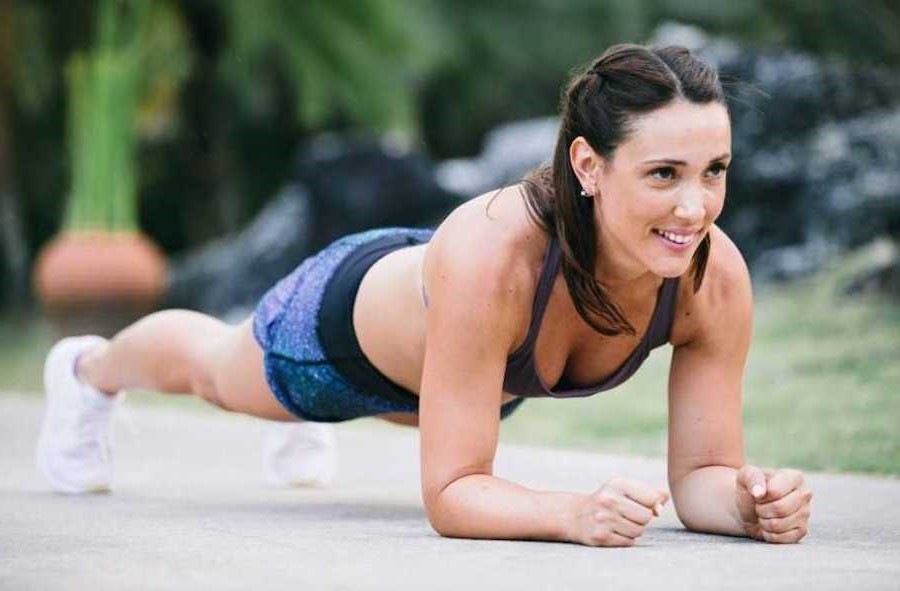
2. Pay Attention To Your Hips
A lot of people forget to keep their hips tucked in when doing the plank. The idea is to sort of curve the hips up and in so that you’re not arching your back, not lowering them down, but are keeping your body completely straight. Imagine trying to pull your belly button in towards your spine.
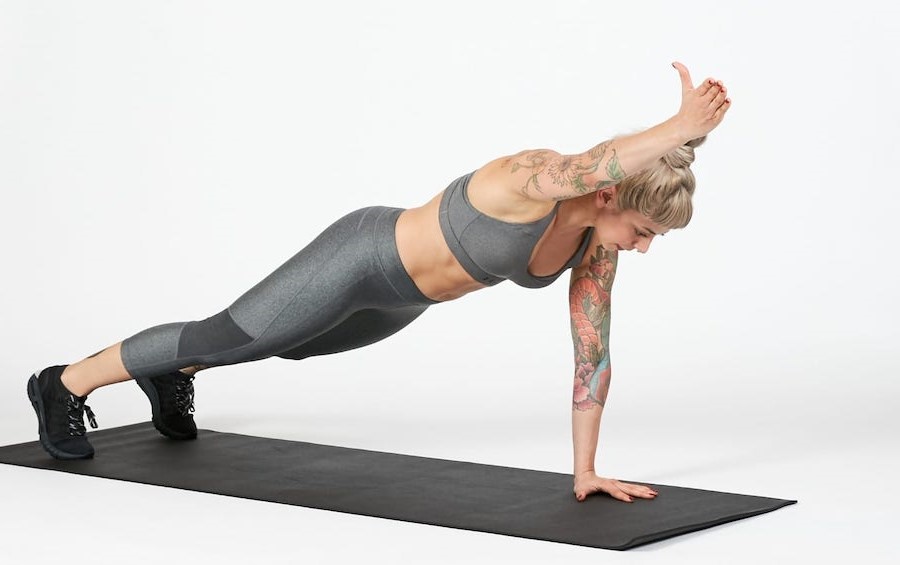
3. Keep Your Butt From Raising Up
A lot of people raise it up too high, but as we’ve mentioned before it should be in line with your spine and fully engaged in the plank. Sometimes it’s best to do your plank next to a mirror so that you can see yourself and correct your form to keep your body straight.
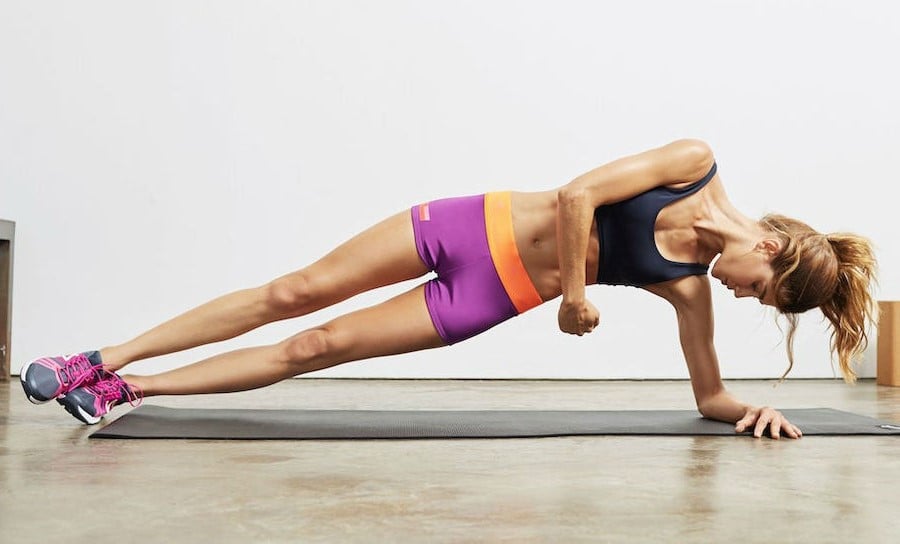
4. Shoulders And Neck
When you’re doing the plank you’re tensing all of your muscles and for a lot of people that means their shoulders tend to raise up and your neck kind of disappears. Fight that instinct. Your shoulders are supposed to be lowered and your neck elongated, with your head being in line with your back, not bowing down. It’s best to look straight ahead a couple of inches ahead of your hands.

5. Remember To Breathe
Doing the plank correctly means that it will start to feel difficult almost right away, and a lot of people tend to hold their breath when concentrating. It’s a common mistake but try to avoid it. Remember to breathe. Take slow breaths in, as if you’re sucking air in through a straw and let it out slowly too as if you’re trying to do the “shhh” sound. Slow and controlled breathing is key.
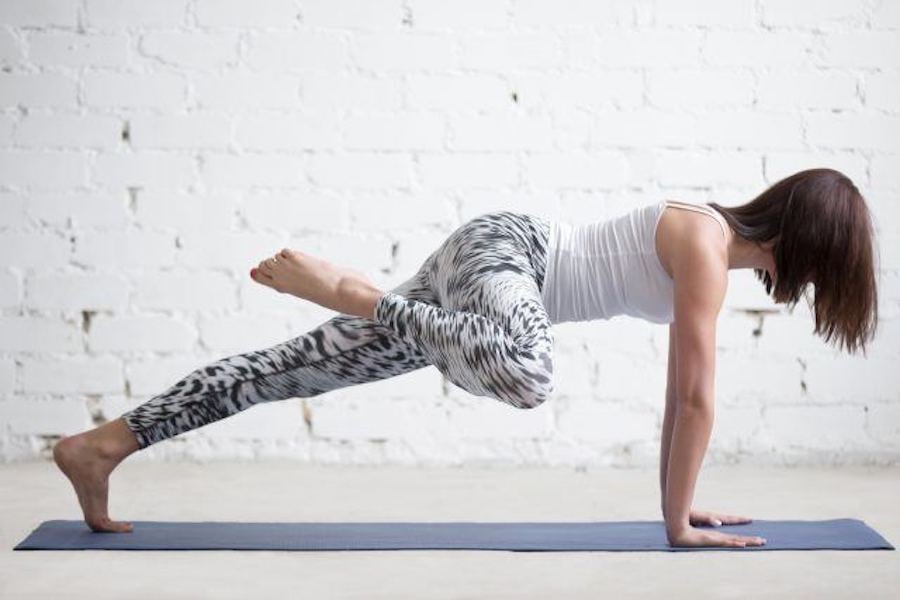
6. Modify According To Your Fitness Level
Remember that there are multiple variations of planks. You can do it by resting your weight on your hands or your forearms. At a decline on an incline. You can do it by leaning on a bench – that’s the easiest one. You can also make it slightly harder by leaning on a medicine ball since your hands will be closer together. If you feel like that’s too easy you can always make it harder by lifting one leg at a time while keeping the rest of your body straight. The hardest way to do the plank is to elevate your legs on a bench.
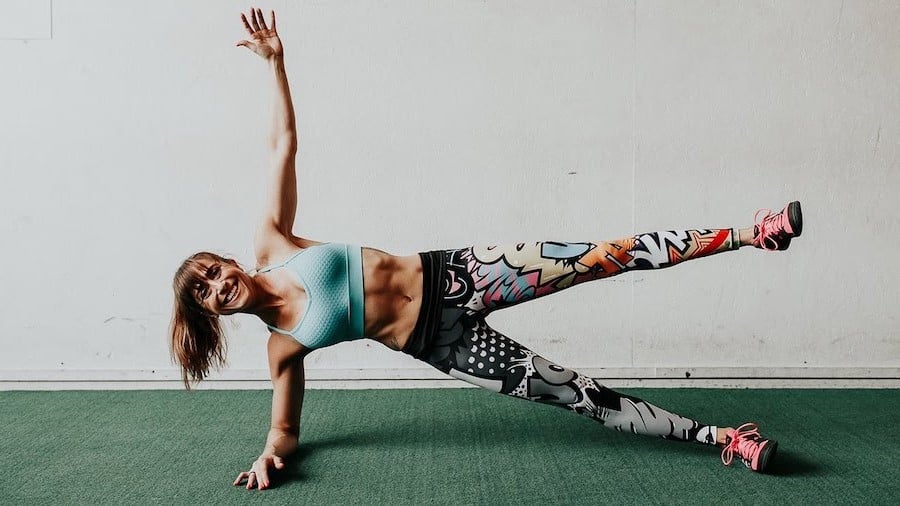
7. Variation Is Key
Keep in mind that there are also different kinds of planks. You can do side planks on your elbow or your hand, and this can also be made more difficult by reaching your other arm up or lifting the top leg. There’s also the reverse plank which is done facing up, with your body weight resting on your elbows or hands and your heels with toes pointing up. And once you master that you can also try dynamic planks by lifting your arms and legs on at a time or even doing the walking plank.